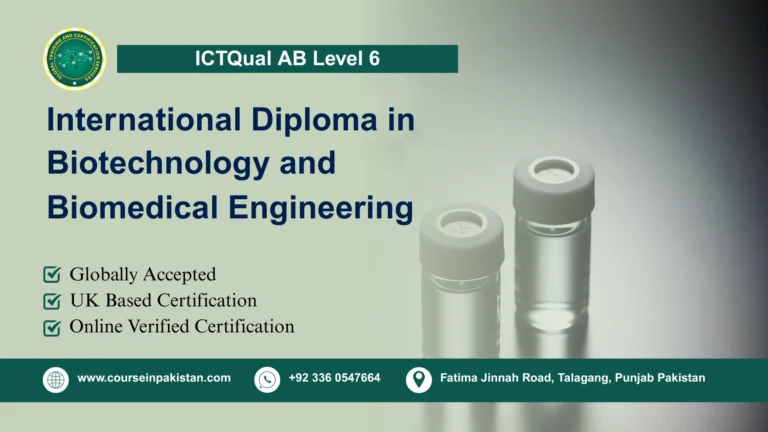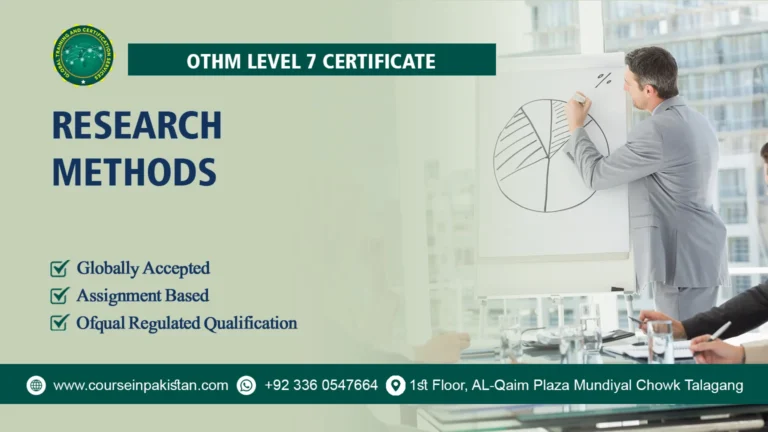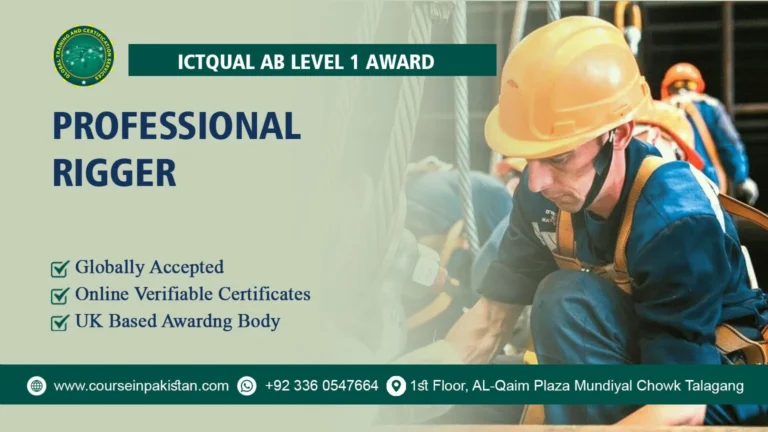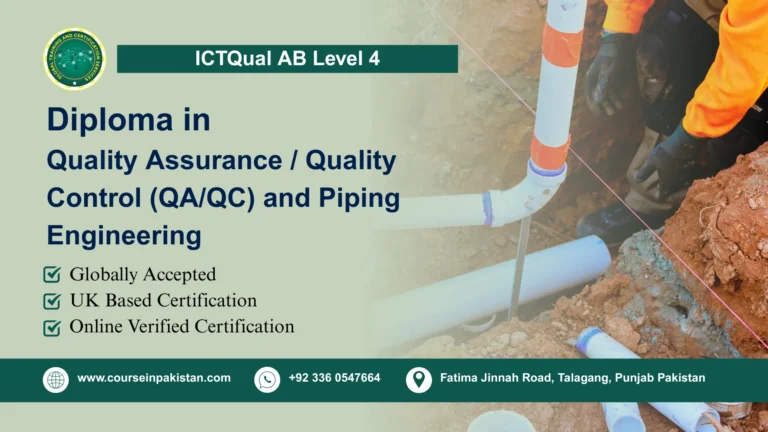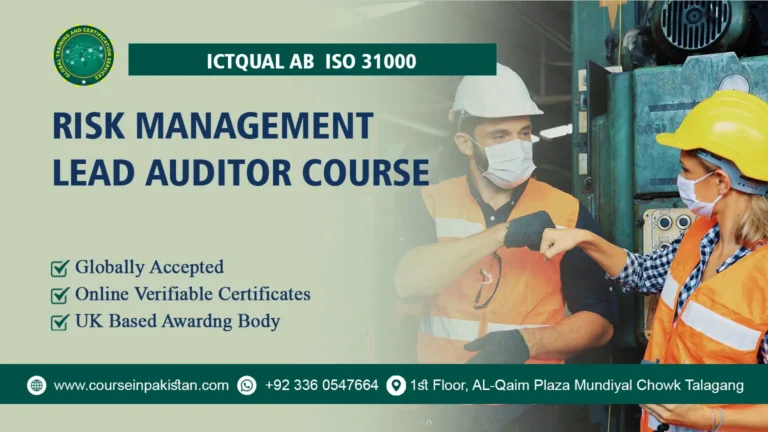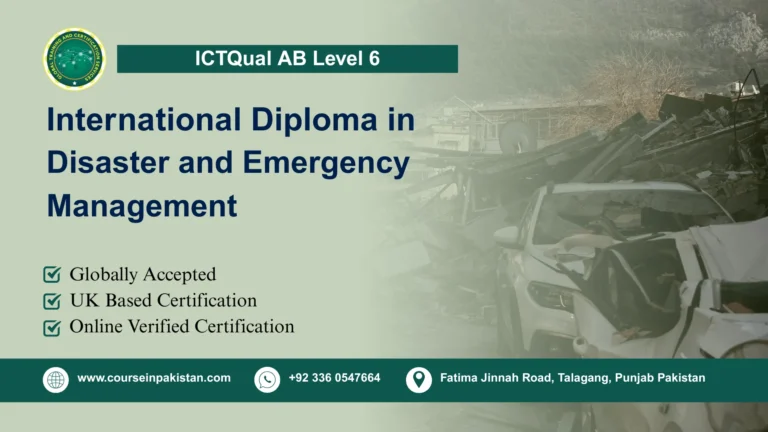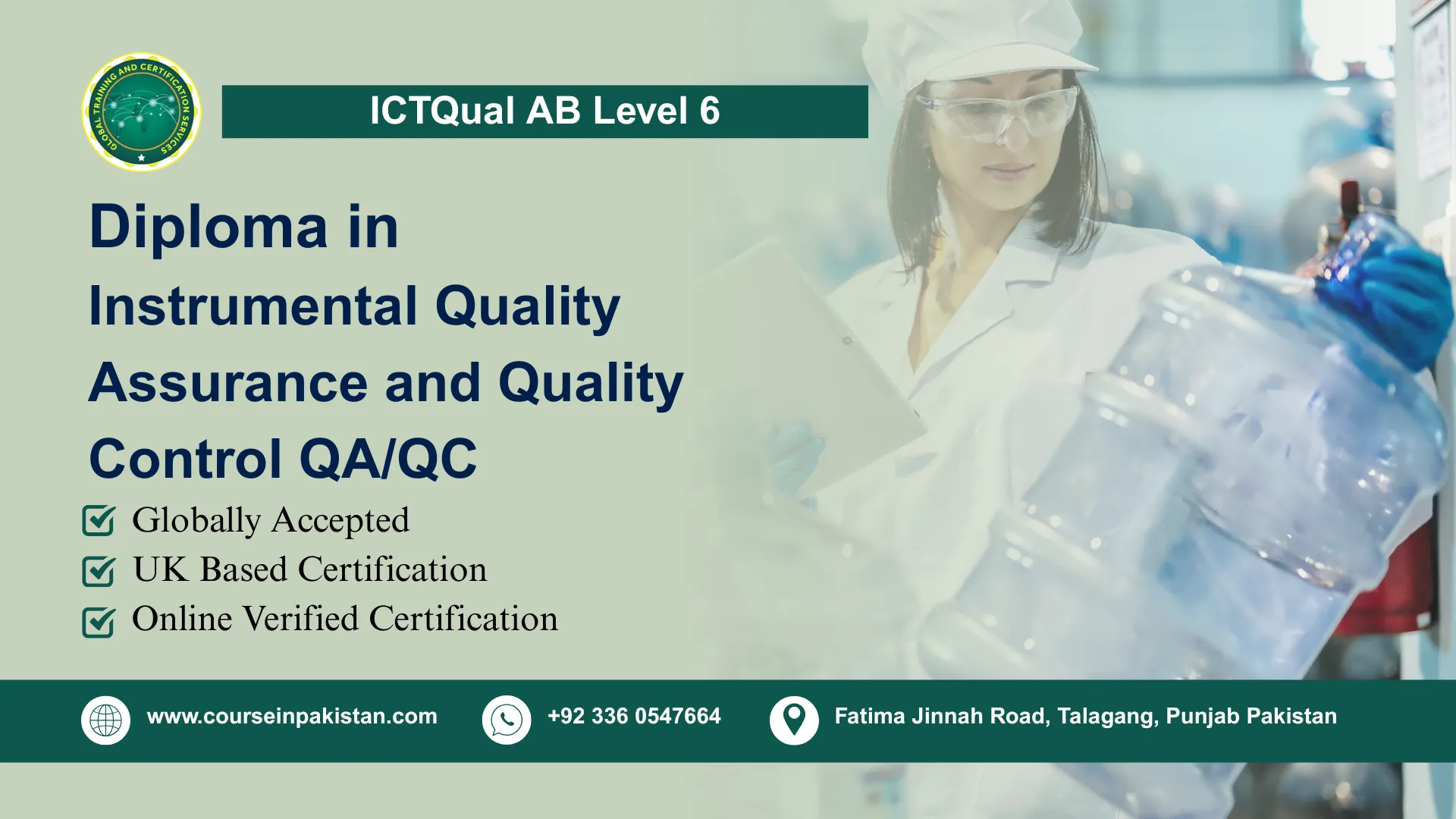
The ICTQual AB Level 6 Diploma in Instrumental Quality Assurance and Quality Control (QA/QC) is a specialized program designed for professionals seeking advanced expertise in quality systems and analytical instrumentation. This diploma bridges the gap between theoretical knowledge and practical application, equipping learners with the skills to ensure product integrity, regulatory compliance, and operational excellence across industries.
As global standards for quality continue to evolve, the demand for skilled QA/QC professionals has surged. This course responds to that need by offering a robust curriculum that covers instrumental techniques, validation protocols, calibration procedures, and statistical quality control. Learners will gain hands-on experience with modern analytical tools and methodologies used in laboratories and manufacturing environments.
Whether you’re working in pharmaceuticals, food processing, environmental testing, or industrial production, this diploma empowers you to lead quality initiatives with confidence. It’s ideal for quality managers, laboratory analysts, auditors, and engineers who want to deepen their understanding of QA/QC systems and enhance their career prospects in a competitive global market.
Course Overview
The ICTQual AB Level 6 Diploma in Instrumental QA/QC provides a comprehensive framework for mastering quality assurance and control through instrumental analysis. The course emphasizes precision, accuracy, and reliability in testing procedures, ensuring that learners can implement and monitor quality systems effectively. Topics include analytical chemistry, instrumentation techniques (such as HPLC, GC, UV-Vis), method validation, and regulatory standards like ISO and GMP.
Delivered through a blend of theoretical modules and practical case studies, the program fosters critical thinking and problem-solving skills. Learners will explore real-world scenarios, interpret data, and apply quality control strategies to maintain product consistency and safety. By the end of the course, participants will be equipped to design, audit, and improve QA/QC protocols in alignment with international best practices.
Key Highlights of the Course:
- Globally recognized Level 6 diploma qualification
- In-depth coverage of instrumental techniques like HPLC, GC, UV-Vis, and FTIR
- Focus on method validation, calibration, and statistical quality control
- Alignment with international standards including ISO, GMP, and GLP
- Practical case studies and industry-relevant applications
- Ideal for professionals in pharmaceuticals, food, environmental, and industrial sectors
- Flexible learning format suitable for working professionals
Course Benefits
This diploma offers a wide range of advantages for professionals aiming to excel in QA/QC roles. Below are the key benefits categorized for clarity:
1. Professional Advancement
- Earn a globally recognized Level 6 qualification that strengthens your professional profile.
- Increase your eligibility for senior roles in quality assurance, laboratory management, and compliance.
- Demonstrate leadership in implementing and maintaining quality systems across industries.
2. Technical Mastery
- Gain hands-on experience with advanced instruments like HPLC, GC, UV-Vis, and FTIR.
- Learn essential techniques for calibration, method validation, and troubleshooting.
- Understand the principles of analytical chemistry and instrumental data interpretation.
3. Regulatory Compliance
- Master international standards such as ISO, GMP, and GLP for quality operations.
- Ensure your organization meets regulatory requirements and avoids non-compliance risks.
- Develop skills in documentation, audit preparation, and quality reporting.
4. Practical Expertise
- Apply theoretical knowledge to real-world scenarios through case studies and simulations.
- Build competence in conducting internal audits and quality assessments.
- Improve decision-making with statistical quality control and data analysis techniques.
5. Career Flexibility
- Suitable for professionals in pharmaceuticals, food processing, environmental testing, and manufacturing.
- Enhance your adaptability to work in diverse QA/QC environments.
- Expand your career options across global markets and multidisciplinary teams.
6. Lifelong Learning
- Establish a strong foundation for further academic or professional specialization.
- Stay updated with evolving technologies and quality standards.
- Cultivate a mindset of continuous improvement and innovation in quality practices.
By completing this diploma, you’ll not only gain technical proficiency but also become a strategic contributor to quality excellence in your organization. Let me know if you’d like this formatted for a brochure or presentation.
Course Study Units
This qualification, the ICTQual AB Level 6 Diploma in Instrumental Quality Assurance and Quality Control QA/QC, consists of 6 mandatory units.
- Strategic QA/QC Planning and ITP Integration in Large Projects
- Supervisory Use of Checklists and Multi‑Level Inspections
- Material Receiving, Preservation, and Non‑Conformance Management
- NEC/NEMA Standards for Complex Installations (Cable Trays, Grounding, Conduits)
- Instrument Elements (Pressure, Flow, Temperature, Level) – Calibration and Compliance with Aramco Standards
- Professional Practice in Loop Checking, Testing, and Commissioning for Industrial Systems
Learning Outcomes
This diploma is designed to equip learners with advanced competencies in quality assurance and control across industrial systems and instrumentation. Each unit focuses on a critical aspect of QA/QC practice, ensuring that graduates are prepared to lead, implement, and audit quality systems in complex environments.
Strategic QA/QC Planning and ITP Integration in Large Projects
By the end of this unit, learners will be able to:
- Develop comprehensive QA/QC strategies tailored to large-scale industrial projects.
- Integrate Inspection and Test Plans (ITPs) into project workflows to ensure compliance and traceability.
- Align QA/QC planning with project milestones, risk assessments, and client specifications.
- Coordinate cross-functional teams to implement quality protocols effectively.
- Monitor and evaluate QA/QC performance using key performance indicators (KPIs).
- Adapt QA/QC plans to evolving project requirements and regulatory changes.
Supervisory Use of Checklists and Multi‑Level Inspections
By the end of this unit, learners will be able to:
- Design and implement effective inspection checklists for various project stages.
- Conduct multi-level inspections to ensure thorough quality verification.
- Train and supervise inspection teams to maintain consistency and accuracy.
- Identify and document deviations during inspections for corrective action.
- Utilize inspection data to improve quality processes and reduce rework.
- Ensure compliance with industry standards through structured inspection protocols.
Material Receiving, Preservation, and Non‑Conformance Management
By the end of this unit, learners will be able to:
- Establish procedures for material receiving and verification against specifications.
- Implement preservation techniques to maintain material integrity during storage and handling.
- Identify and document non-conforming materials using standardized reporting formats.
- Coordinate with suppliers and project teams to resolve non-conformance issues.
- Maintain traceability and documentation for all received materials.
- Apply root cause analysis to prevent recurrence of material-related issues.
NEC/NEMA Standards for Complex Installations (Cable Trays, Grounding, Conduits)
By the end of this unit, learners will be able to:
- Interpret and apply NEC and NEMA standards in electrical installations.
- Design and inspect cable tray systems, grounding networks, and conduit layouts.
- Ensure safety and compliance in complex electrical infrastructure projects.
- Evaluate installation practices against regulatory and client requirements.
- Document installation procedures and inspection outcomes for audit readiness.
- Collaborate with engineering teams to resolve installation challenges.
Instrument Elements (Pressure, Flow, Temperature, Level) – Calibration and Compliance with Aramco Standards
By the end of this unit, learners will be able to:
- Understand the operational principles of key instrument elements used in industrial systems.
- Perform calibration procedures for pressure, flow, temperature, and level instruments.
- Ensure compliance with Aramco and international calibration standards.
- Maintain calibration records and certificates for audit and traceability.
- Troubleshoot instrument performance issues and recommend corrective actions.
- Integrate calibrated instruments into QA/QC systems for continuous monitoring.
Professional Practice in Loop Checking, Testing, and Commissioning for Industrial Systems
By the end of this unit, learners will be able to:
- Conduct loop checking procedures to verify signal integrity and system functionality.
- Execute testing protocols for control systems, instrumentation, and automation networks.
- Plan and manage commissioning activities in accordance with project timelines.
- Collaborate with multidisciplinary teams during system startup and validation.
- Document commissioning results and prepare handover packages for clients.
- Apply safety and quality standards throughout loop checking and commissioning phases.
These learning outcomes ensure that graduates of the ICTQual AB Level 6 Diploma are not only technically proficient but also strategically capable of managing quality assurance and control across diverse industrial environments. The program fosters leadership, precision, and compliance—key attributes for professionals in today’s quality-driven industries. Let me know if you’d like this formatted for a syllabus, brochure, or training manual.
Who is This Course For?
- Quality Assurance and Control Professionals Individuals currently working in QA/QC roles who want to deepen their technical and strategic expertise.
- Laboratory Technicians and Analysts Professionals involved in testing, calibration, and instrumentation who seek formal recognition and advanced skills.
- Engineers and Project Managers Those managing large-scale industrial projects requiring integration of quality systems and inspection protocols.
- Compliance Officers and Auditors Personnel responsible for ensuring regulatory adherence and conducting internal or external audits.
- Graduates in Science or Engineering Fields Recent graduates looking to specialize in quality assurance and instrumentation for career advancement.
This course is ideal for learners who are detail-oriented, technically inclined, and committed to maintaining high standards in industrial operations.
Future Progression
- Upon successful completion of this diploma, learners can pursue several professional and career development opportunities:
- Promotion to Senior QA/QC Roles Qualify for supervisory or managerial positions in quality assurance and control departments.
- Specialization in Regulatory Compliance Focus on compliance roles aligned with ISO, GMP, and industry-specific standards.
- Consultancy and Auditing Careers Work as independent QA/QC consultants or auditors for industrial and laboratory systems.
- Cross-Industry Mobility Transition into sectors such as pharmaceuticals, oil and gas, food processing, and environmental testing.
- Leadership in Quality Systems Implementation Lead quality initiatives and drive continuous improvement across complex projects.
Academic Pathways:
- This diploma also opens doors for further academic advancement in quality and engineering disciplines:
- Postgraduate Studies in Quality Management Pursue a master’s degree in quality assurance, industrial engineering, or regulatory affairs.
- Advanced Diplomas or Certifications Enroll in specialized programs such as Six Sigma, Lean Manufacturing, or ISO Lead Auditor training.
- Research and Development Programs Engage in academic or industrial research focused on instrumentation and quality systems.
- University Bridging Programs Use the diploma as a stepping stone to enter university-level programs in science or engineering.
The ICTQual AB Level 6 Diploma in Instrumental Quality Assurance and Quality Control (QA/QC) is a transformative qualification for professionals committed to excellence in industrial and laboratory environments. With a curriculum grounded in global standards and practical application, this course empowers learners to lead quality initiatives, ensure compliance, and drive innovation. Whether you’re advancing in your current role or preparing for new opportunities, this diploma provides the knowledge, credibility, and confidence to succeed in the evolving world of QA/QC.

